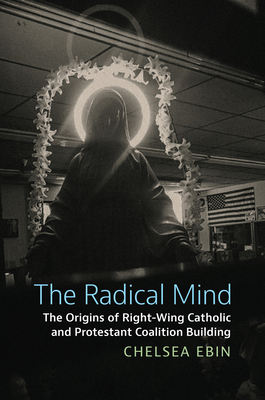
Ebin, Chelsea
Chelsea Ebin's The Radical Mind aims to overturn this consensus. Through a close analysis of New Right architects Connaught Marshner and Paul Weyrich (who is often seen as secular but was a committed Catholic), this book explores the way conservative Catholics and Protestants overcame their long-standing antipathy to form a political coalition--what Ebin calls the New Christian Right. Drawing on extensive archival research, Ebin shows how the movement's key architects infused right-wing activism with religion. Rather than working to conserve the past, this book argues that the New Christian Right is fundamentally a forward-looking and proactive movement focused on remaking the political landscape in the United States.
The radical aims of the New Christian Right have been obscured by the way they cultivated a shared identity of victimhood and manipulated the discourse about backlash to create a nostalgic idea of the past that they then leveraged to justify their right-wing policy goals. The Catholic-Protestant alliance constructed an imagined past that they projected into the future as their ideal vision of society. Ebin calls this strategy "prefigurative traditionalism"--a paradoxical prefiguring of a manufactured past. Using this tactic, the New Christian Right coalition disguised the radicality of its politics by framing their aims as reactionary and defensive rather than proactive and offensive.
An interdisciplinary work informed by the fields of history, religious studies, public law, and American politics, The Radical Mind offers a new and convincing explanation for the recent gains of the Christian Right and the morally supercharged political landscape we face today.
member goods
listens & views

BILLBOARD TOP 10 KARAOKE: 1980'S ...
by BILLBOARD TOP 10 KARAOKE: 1980'S 2 / VARIOUS
COMPACT DISCout of stock
$9.49






